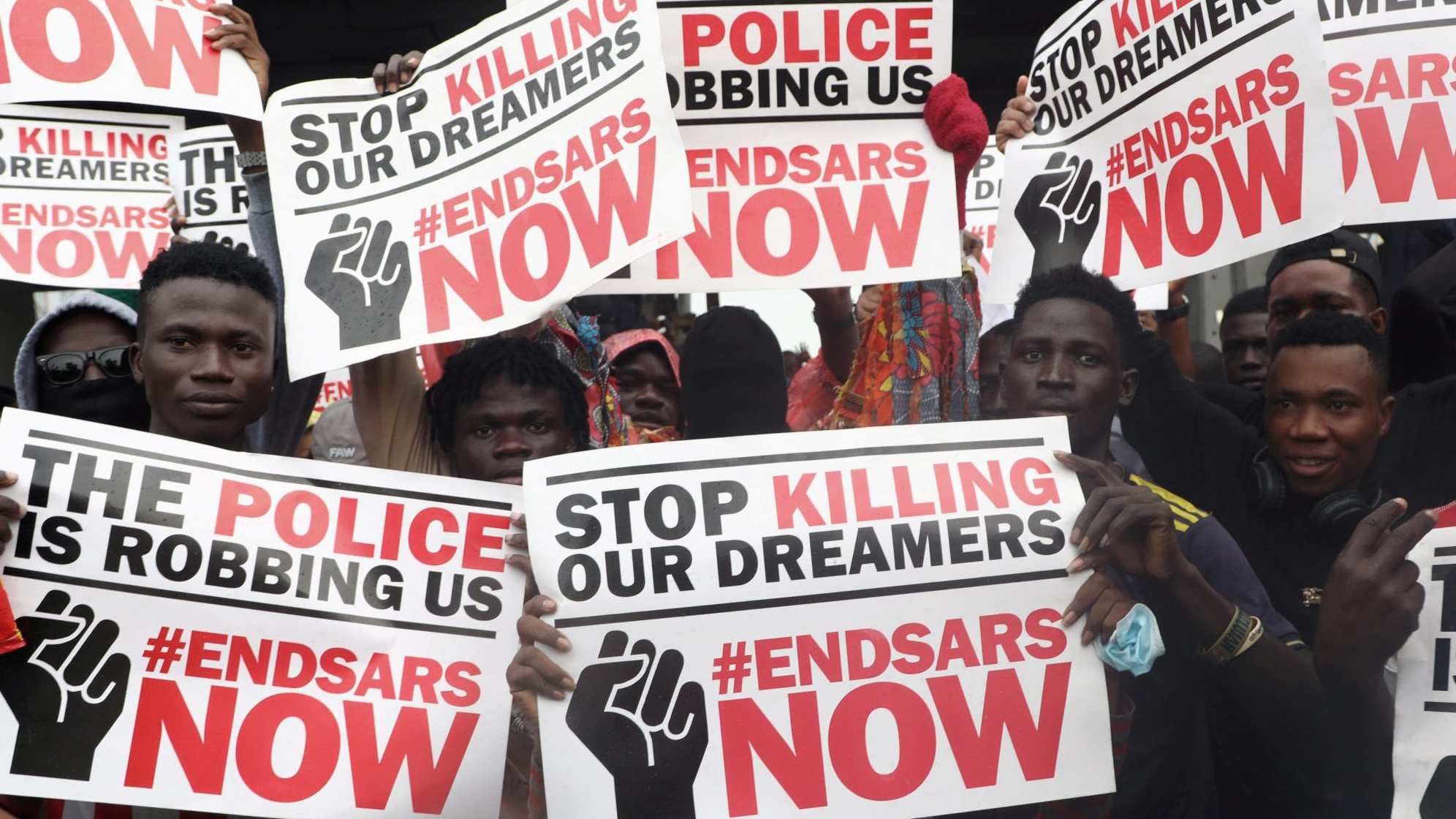The hashtag #EndSARS has generated a lot of support on Twitter. Who were the people that joined the online protests?
Online activism has played a role in protests all over Africa in the past decade. One of the most recent uprisings happened in Nigeria. Since October, when Nigerians took to the streets in various cities to protest against the Special Anti-Robbery Squad (SARS), the hashtag #EndSARS has generated a lot of support on Twitter. This police force has been accused of torturing suspects and killing extrajudicially for years. Who were the people that joined the online protests?
This was the topic of research by of a group of Master's students African Studies at Leiden University with diverse family backgrounds, from South-Africa and Morocco to the Democratic Republic of Congo, the Netherlands and Nigeria. They share a common interest in political protest in African countries.
In early November, an online survey reached out via Twitter. As a result, over a thousand hashtag activists filled in the online survey. With additional interviews and with images from talented Nigerian photographer Benedict Pawa, the blogposts offer an interesting insight in one of Africa’s youngest protest movements. It tells you the story of how #EndSARS gained momentum when the women joined in and how the particular generosity of the diaspora in the UK, donating more than anyone else to the cause, contributed to the success. And, lastly, how the other movement against police brutality, Black Lives Matter, inspired Nigerian citizens to speak out.
The results of this study here.
The research was done by Master’s students of African Studies — Oussama El Khairi, Shannon Lorimer, Jared Hally and Femke van Zeijl — for the Innovative Research Methods platform of Leiden University.
Innovative Research Methods is an initiative of www.voice4thought.org


